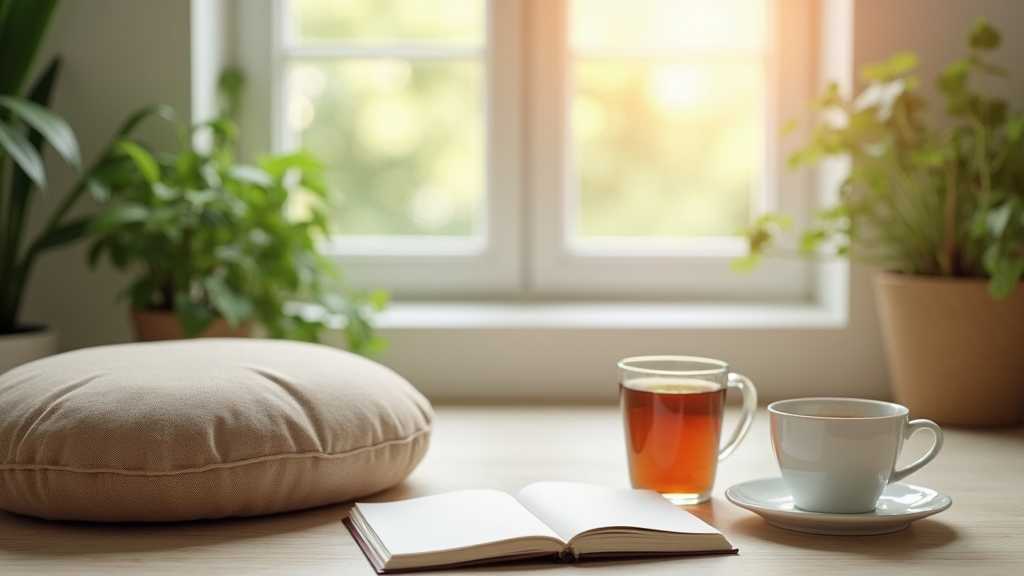Practicing sacred self validation means honoring my own inner voice and accepting my worth just as I am, without needing praise or approval from others. In a world where everyone is constantly sharing their best moments and opinions online, it can be tough to avoid the trap of comparing myself to others. I sometimes find myself looking outward for validation, which can make my sense of self feel shaky. By using daily practices for selfvalidation, I can strengthen my trust in myself and tune out the background noise of outside opinions.

Building a Foundation for Sacred Self validation
Self validation is all about turning inward and learning to listen to my feelings, thoughts, and needs. I stop relying on the outside world to tell me if I’m doing okay, and I begin trusting myself more. When I consistently validate myself, my confidence increases, and I’m less affected by criticism or praise from others. By weaving in a handful of purposeful practices every day, I lay a steady foundation for selfworth and peaceful selfacceptance. Here’s how I can begin nurturing sacred selfvalidation with these ten practices.
1. Grounding Into My Inner Truth
Waking up to a new day can mean sensory overload almost immediately—from buzzing alarms to endless notifications. To give myself a solid start, I use a morning stillness practice. For five to ten minutes, I sit quietly, focus on my breath, and allow my mind to settle. Sometimes I meditate, or I simply sit in silence before interacting with anyone or anything. This moment gives me a chance to greet myself before hearing anyone else’s thoughts.
Adding an affirmation ritual to my mornings solidifies this sense of grounding. I choose phrases that remind me of my worth, such as “I am enough as I am,” or “My voice matters.” I write them in my journal or speak them out loud. These words feel more authentic with daily repetition. When they come straight from my heart, affirmations can set a positive tone for the day.
2. Honoring My Emotions Each Day
During busy days, I sometimes forget to check in with myself emotionally. A midday emotional checkin is a simple but important practice. I pause and ask, “How am I feeling right now? What do I need?” Sometimes my answer surprises me. Perhaps I’m more tired than I realized, or maybe I need a break. Recognizing all of my feelings, even the uncomfortable ones, helps me accept them without judging myself for having them.
Sacred journaling is something I enjoy because I can honestly write whatever is on my mind. With no rules or right answers, writing becomes a safe space. Prompts like “Today, I honored myself by…” or “A truth I’m tracking down is…” help get things flowing when I’m stuck. Seeing my thoughts on paper allows me to hear my inner voice in a fresh way.
3. Embodying Worthiness Through Daily Actions
Connecting to my body is another powerful way to practice selfvalidation. Each day, I set aside time for gentle movement. I might do a few yoga stretches, listen to music and dance, or go for a mindful walk. The focus isn’t on burning calories or changing how I look. Instead, I notice how my body feels and appreciate it for getting me through the day.
I’ve also started paying more attention to how I nourish myself. Eating mindfully, instead of eating on the go, allows me to notice what foods actually make me feel energized and happy. I give quiet thanks for my meal and remind myself that I’m worthy of care and enjoyment. These small habits help me feel more at home in my body every day.
4. Creating Sacred Boundaries
Learning to trust myself also means setting limits. Practicing conscious “yes” and “no” means asking myself, “Is this request in line with my truth?” If the answer is no, I remind myself that I’m allowed to say no without guilt. Respecting my own limits is one of the clearest ways I can honor and validate myself.
Digital boundaries are just as important. The urge to check notifications or compare myself online is strong, so I make space for digital detox moments by putting my phone away for an hour in the evening or keeping it out of reach during meals. Even tiny experiments with unplugging let me stay present and tuned in to myself, instead of chasing online approval.
5. Reflection and Integration at Day’s End
At night, I like to do a quick evening reflection. I ask myself, “How did I show up for myself today?” Maybe I spoke kindly to myself instead of being selfcritical, or maybe I set a healthy boundary. Each time I notice moments of selftrust, no matter how small, I highlight them.
I wrap up my evening by listing three things I appreciate about myself. These can be qualities like patience or bravery, or things I did that made me proud. This nightly gratitude practice strengthens my sense of worth and serves as a gentle reminder that simply being myself is enough.
Overcoming Challenges On the Self validation Adventure
Staying consistent with self validation practices takes ongoing effort. The world sometimes rewards fitting in or external achievement more than inner truth, so I remind myself often that my adventure is unique. If I forget a practice or fall into old validationseeking habits, I treat myself with patience instead of criticism. Each new day is a chance to start again.
Old patterns and selfdoubt can show up, especially when I’m tired or stressed out. During these moments, I keep things simple by focusing on just one supportive practice for the day instead of trying to do everything perfectly. For example, repeating my favorite affirmation or writing a compassionate letter to myself gives me a manageable way to nurture selfvalidation, even when life gets busy.
Beyond Daily Practices: RealLife Benefits
Sticking with these practices has raised my selfconfidence, helped me recover from criticism quickly, and strengthened my relationships. When I validate myself, I’m less likely to chase approval from friends, partners, or coworkers. I see that I can set boundaries and make decisions that feel right to me, rather than just following what’s expected. My sense of inner peace and selfrespect grows as time goes on.
- Improved Emotional Resilience: Checking in with my feelings and validating them gives me a toolkit for facing challenges with clarity.
- Healthier Relationships: When I no longer rely on others for validation, I can connect with more authenticity and less resentment.
- Personal Fulfillment: Living in line with my true self is much more satisfying than chasing quick praise from outside sources.
Frequently Asked Questions
Question: What if these practices feel awkward or uncomfortable at first?
Answer: That’s common. When starting something new, especially related to selfworth, awkwardness is normal. I keep going, even if it feels odd, because with time and repetition these actions start to feel more natural and genuine.
Question: Do I have to do all ten practices every day?
Answer: Not at all. I pick one or two practices that speak to me and start there. Staying steady is more helpful than trying to do everything perfectly from the getgo.
Question: What if I slip back into seeking outside validation?
Answer: That happens to everyone. The idea isn’t to avoid it forever but to notice when it’s happening and gently refocus on my own voice. Being kind with myself always matters more than being perfect.
Staying Patient With the Process
Sacred self validation is an ongoing adventure, not a single achievement. Taking small, repeated steps helps this mindset become a natural part of daily life. When I give myself the same care and validation I often seek from others, I build lasting confidence and selfrespect. You might want to try one of these daily practices this week and see how it goes. Self validation is about progress, not perfection, and you deserve to feel the quiet power of honoring your own truth every day.
Raya Griggs – Feel It To Free It
